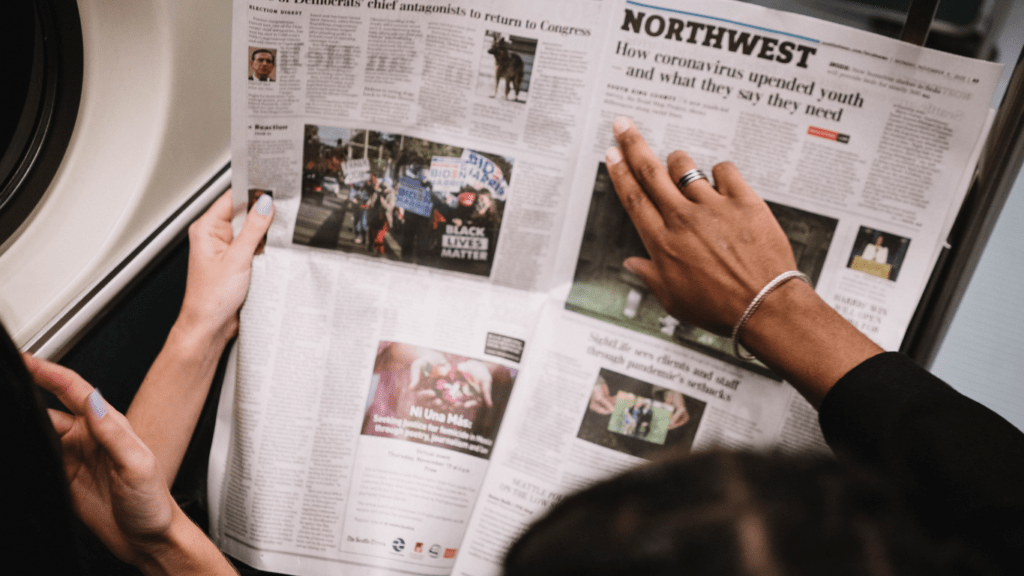Overview of World in Focus
In today’s rapidly changing landscape, focusing on critical global stories offers invaluable insights into the mechanisms driving our world. Key events such as:
- technological breakthroughs
- political shifts
- social movements
demand attention. For instance, advancements in AI and renewable energy reshape industries and influence daily life. Political transformations, like elections and policy changes, create ripple effects both domestically and internationally.
Observing these transformations reveals more than just immediate effects; they indicate future trends. Climate change impacts, for example, highlight the urgency of sustainable practices. Economic fluctuations, seen in market shifts and trade policies, affect global stability and personal livelihoods. Cultural shifts, including changes in social norms and values, reflect broader societal evolution.
Recognizing such stories promotes informed decision-making. By understanding these narratives, I’m better equipped to navigate the complexities of our interconnected world. Staying engaged with these developments enriches my perspective, integrating global awareness into everyday choices. This awareness shapes a more comprehensive view of the present and arms us with the knowledge needed to face future challenges.
Political Developments
Political changes play a crucial role in shaping the global landscape. I’ll examine significant developments like elections and international relations that influence global governance.
Major Elections and Outcomes
Elections shape national priorities and affect international policies. Recent significant elections in countries such as the United States and Germany have shifted power dynamics. In the United States, the 2020 presidential election led to policy changes in climate, healthcare, and international alliances. Germany’s 2021 federal election marked the end of Angela Merkel’s 16-year tenure, introducing new leadership with different policy approaches, particularly on energy and EU relations. These shifts showcase democracy’s impact on local and international levels.
International Relations and Alliances
Nations form alliances to strengthen economic and political stability. Recent years have seen reinforced collaborations, like the European Union’s unified stance on trade and security. Meanwhile, tensions between superpowers like the United States, China, and Russia continue to shape foreign policy and global security strategies. NATO’s evolving role in transatlantic security reflects changes in defense priorities in response to regional conflicts. These alliances and tensions highlight the importance of diplomacy in maintaining international order and cooperation.
Economic Trends
Economic trends significantly shape global dynamics. Observing these trends reveals insights into current market conditions and future economic landscapes.
Global Market Fluctuations
Market fluctuations impact global stability. Stock indices across major economies experience volatility due to geopolitical tensions and trade policies. For example, shifts in the US-China trade relationship cause significant movements. Oil prices also fluctuate amid supply chain disruptions, affecting economies reliant on energy exports or imports. Investors adapt strategies to these changes, balancing risks and opportunities in diverse markets.
Emerging Economies and Trade
Emerging economies drive global growth. Nations like India and Brazil expand rapidly, contributing to increased demand for goods and services. Trade agreements, such as the African Continental Free Trade Area, boost regional commerce by reducing tariffs and enhancing market access. However, challenges like infrastructure gaps and regulatory hurdles persist. Understanding these economies helps businesses navigate new opportunities and risks, influencing international trade strategies.
Environmental Challenges
Addressing environmental challenges plays a vital role in securing our planet’s future. Climate change and conservation efforts represent two critical areas of focus.
Climate Change Initiatives

Governments and organizations worldwide are launching climate change initiatives to mitigate environmental impact. The Paris Agreement, which aims to limit global temperature rise to 1.5°C, brings nations together to combat climate change. Many countries, like Sweden and Costa Rica, commit to becoming carbon-neutral by 2050.
These nations implement policies to reduce emissions, promote renewable energy sources such as solar and wind, and invest in electric vehicle infrastructure. In addition, global businesses like Microsoft and Amazon pursue carbon neutrality, setting ambitious targets for reducing their carbon footprints. These initiatives collectively drive significant progress toward a sustainable future.
Conservation Efforts and Innovations
- Conservation efforts and innovations help preserve biodiversity and natural habitats.
- Organizations like the World Wildlife Fund (WWF) and Conservation International collaborate globally to protect endangered species and ecosystems.
- Technological innovations enhance these efforts significantly. For example, drones monitor wildlife populations and track illegal poaching activities in remote areas.
- Satellite technology provides detailed images of deforestation and land degradation, enabling real-time tracking and response.
- Marine conservation projects focus on protecting coral reefs and reducing plastic pollution, utilizing advanced filtration systems and biodegradable alternatives.
These efforts, supported by innovative solutions, play a crucial role in maintaining ecological balance.
Social Movements
Social movements drive change across the globe, challenging norms and advocating for justice. These movements shape societies by focusing on pivotal issues like human rights and cultural transformations.
Human Rights and Equality
Human rights movements demand equal treatment and dignity for all individuals. Efforts like the Black Lives Matter movement have raised awareness about racial justice by highlighting systemic discrimination. Similarly, LGBTQ+ rights advocates push for legal recognition and protection against discrimination, as seen in the legalization of same-sex marriage in numerous countries. Women’s rights campaigns continue to fight gender inequality, emphasizing issues like wage parity and reproductive rights. These movements influence both domestic policies and international human rights standards.
Cultural Shifts and Impacts
Cultural movements redefine societal norms and values, influencing global cultures. The rise of digital connectivity has fostered global youth culture, reflected in trends like K-pop and viral dance challenges. Language and identity also play roles in cultural shifts, as seen with the resurgence of indigenous languages and traditions in various regions. Social media advances these shifts by enabling instant cultural exchange and amplifying diverse voices. These cultural transformations impact industries like entertainment, fashion, and communication, and they highlight the dynamic interplay between tradition and modernity.



 ____________
____________
